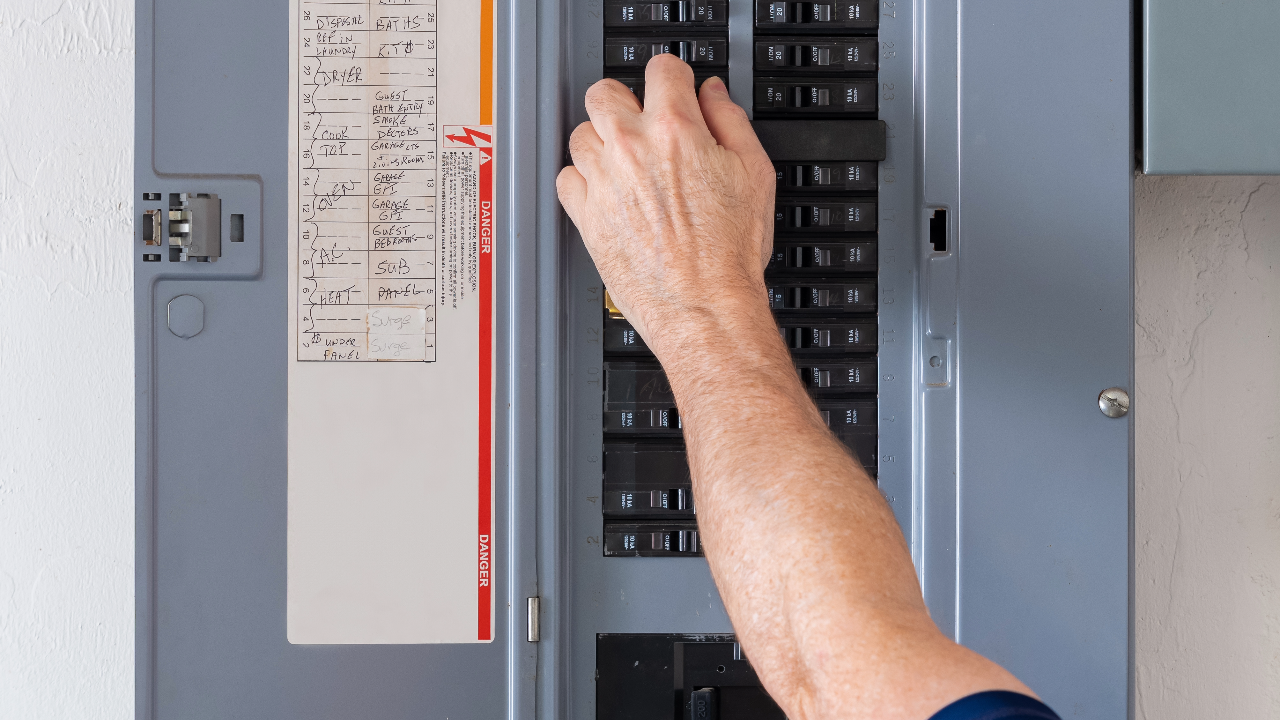Upgrading Electrical Panels: Ensuring Safety and Meeting Modern Electrical Demands
Electricity powers nearly every aspect of our daily lives, from our smartphones to our home appliances. As technology advances and electrical demands increase, it’s crucial to ensure that your electrical system can keep up. One essential aspect of this is upgrading outdated electrical panels. In this blog post, we’ll delve into the significance of upgrading electrical panels for safety and to meet the needs of the modern world.
The Heart of Your Electrical System
Your electrical panel, also known as a breaker box or fuse box, is the heart of your home’s electrical system. It distributes electricity to various circuits throughout your home, ensuring that power reaches your lights, appliances, and outlets safely. However, like any technology, electrical panels can become outdated and less effective over time.
Safety First when dealing with Electrical Panels
The primary reason to upgrade an old electrical panel is safety. Outdated panels may not meet current electrical codes and safety standards, putting your home at risk of electrical fires, shocks, and other hazards. Here are some safety issues associated with outdated panels:
- Overloading: Older panels may not handle the electrical load required by modern appliances and electronics. Overloading can lead to tripped breakers, overheating, and potential fire risks.
- Obsolete Components: Aging panels may contain outdated components that are no longer considered safe, such as aluminum wiring, which is prone to corrosion and poses fire risks.
- Inadequate Grounding: Proper grounding is essential to protect against electrical faults. Older panels may lack adequate grounding, increasing the risk of electrical accidents.
- No Arc-Fault Protection: Modern electrical codes require arc-fault circuit interrupters (AFCIs) to protect against electrical arcing, which can cause fires. Older panels may not have this critical safety feature.
Meeting Modern Electrical Demands
Apart from safety concerns, modern households have higher electrical demands than ever before. With more electronics, appliances, and gadgets in use, it’s crucial to upgrade your electrical panel to accommodate these needs. Here’s why:
- Reduced Energy Efficiency: Older panels can be less energy-efficient, leading to higher electricity bills. Upgrading to a more efficient panel can save you money in the long run.
- Preventing Tripped Breakers: If you frequently experience tripped breakers or blown fuses, it’s a sign that your electrical panel may be overtaxed. Upgrading to a panel with more capacity can prevent these inconveniences.
- Safety for Modern Electronics: Many modern electronic devices are sensitive to fluctuations in power. An upgraded electrical panel can provide stable and clean power, protecting your valuable electronics from damage.
When to Consider an Electrical Panel Upgrade
If you live in an older home or have noticed any of the following signs, it may be time to consider upgrading your electrical panel:
- Frequent circuit overloads or tripped breakers.
- Buzzing sounds or burnt odors from the electrical panel.
- **Lights flickering or dimming when using appliances.
- **Outlets or switches that feel warm to the touch.
- **The presence of outdated components like fuse boxes or knob-and-tube wiring.
Shedding some light on Electrical Panels
Upgrading your electrical panel is an investment in the safety, functionality, and efficiency of your home. It ensures that your electrical system can meet the demands of the modern world while reducing the risk of electrical hazards. To determine whether an upgrade is necessary, consult with a licensed electrician who can assess your current panel and provide recommendations for a safer and more efficient electrical system. Don’t wait until electrical issues become emergencies; take proactive steps to upgrade your electrical panel and enjoy a safer, more reliable home.
Call Grener Electric today for all of your residential and commerical electrician needs.

